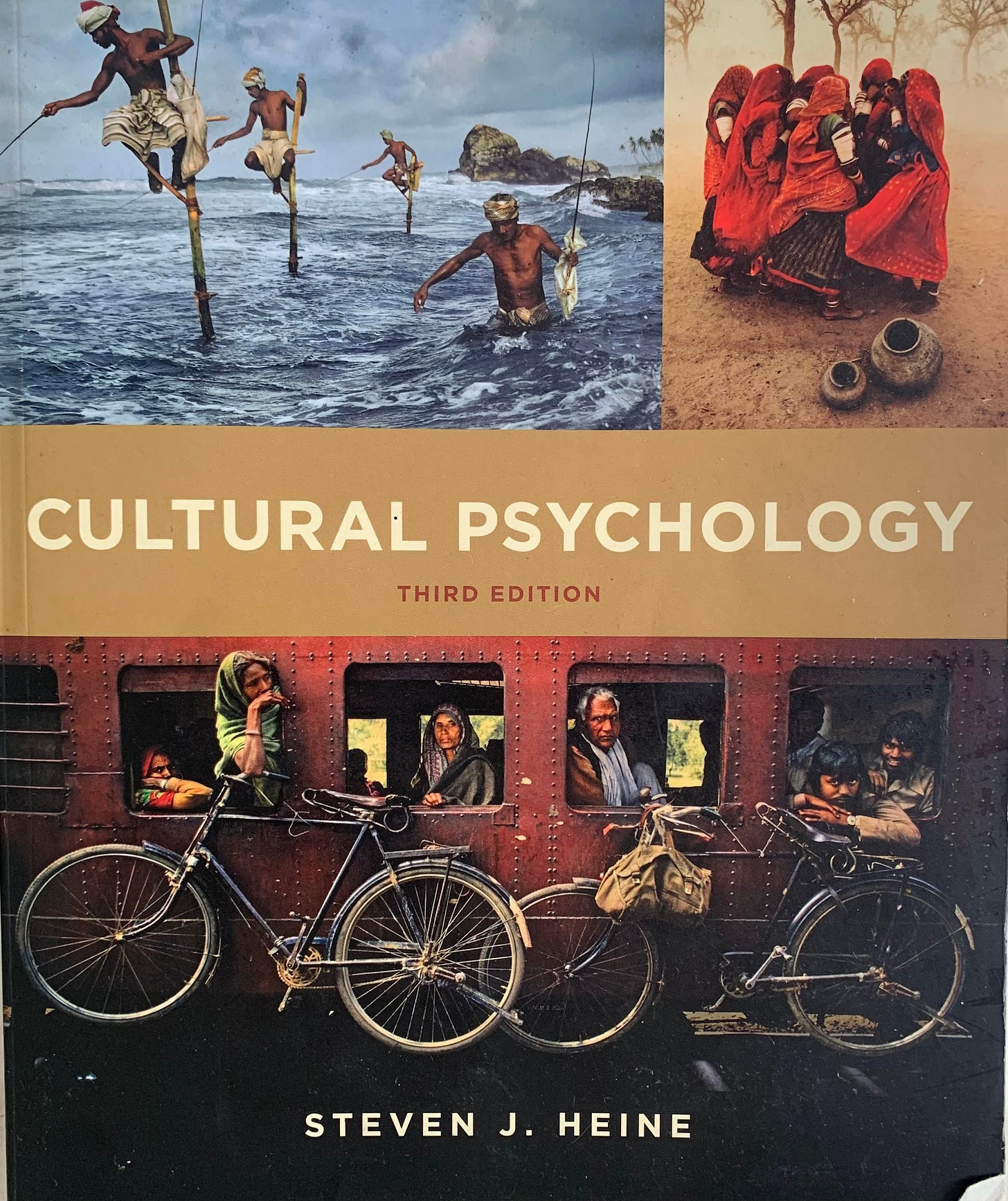Greetings, fellow Print Connoisseurs!
Today, I’m very excited to be bringing you one of my favourite Substack writers,
. I’ve followed Nolan for a while and absolutely love his work.Nolan writes
, where he writes stories and advice for nomads, immigrants, refugees, third-culture kids or anyone else that feels inescapably foreign. I actually recommend BWB on my primary newsletter, Cosmographia, so that tells you how I feel about Nolan’s writing! I was very excited when he agreed to write a guest post, and he didn’t disappoint. Enjoy!—
“A person who knows only one country knows no countries.”
— Seymour Martin Lipset
As “the Belgian kid” raised in a town where bible thumpers think they’ll drink a cold Bud with white Jesus on the day they die, I didn’t realize what was wrong with me until I went to university. Turns out, I’m a third culture kid.
I learned that term in the textbook, Cultural Psychology, by Steven J. Heine. A third culture kid is a child who spends a significant period of their developmental years in a culture outside their parents’ passport culture. We’re often multilingual, adaptable, have high levels of cross-cultural competence, tolerant of different views, and our identities are absolutely fucked.
“What kinds of freaks would eat snails?”
“Actually, in France and Spain it’s common for—”
“Shut up Belgian kid. Go eat your shit sandwich.”
Then I’d go eat my Nutella sandwich in tears (their marketing hadn’t reached small-town Canada yet) and reflect on these types of conversations. My peers showed me that knowledge about other countries, speaking different languages, and offering multiple perspectives was for losers. Yet, my parents told me the opposite, and I was left with an identity crisis that started in childhood and carried on until I read Cultural Psychology.
My identity issues drew me to acting. I started taking Shakespearean acting classes when I was seven. My first role was Caliban from Tempest, and I was happy to play the deformed son of a witch who could make the audience laugh with strange body movements.
The laughter became an addiction, and 11 years later I left my small town for Vancouver, BC, to pursue an acting and screenwriting career. After graduating from the writing program at VFS, I started a web series called Lean Meat, which got the attention of a New York manager in whose garage I ended up nude. For details of that story, you’ll need to read my book, Living With The In-Laws.
My momentary fame after “That time I was on Ellen DeGeneres,” gave me the blinded hope I’d one day become famous. Since people on the superficial side of the film industry surrounded me, my critical thinking went out the window. I even bought an energy wand.
Fortunately, my partner hated that world, loved travelling, and her parents let me live in their multi-million dollar townhouse for free. Academia replaced the black hole in my soul dug by the film industry. I thrived as an academic, ended up at the top of all my classes, learned how to do proper research, and threw away my energy wand.
My partner influenced me to spend my money on travel instead of acting classes and networking events, which usually lead to partying. My passion for travel returned around the same time I was introduced to Cultural Psychology.
“A person who knows only one country knows no countries.”
I felt this quote in my bones the second I read it in Cultural Psychology, but I didn’t know how to explain it yet. Once I learned about third-culture kids, reference-group effects, deprivation effects, acquiescence bias, and pluralistic ignorance, I started to understand my thinking and why other people treated me the way they did growing up. Instead of feeling confused about my identity and angry at people’s ignorance, I could explain it.
I’ll be forever foreign no matter where I go. That’s why I started
, to share: stories and advice for nomads, immigrants, refugees, third culture kids, and anyone else that feels inescapably foreign. I even got to interview Dr. Steven J. Heine, the author of Cultural Psychology, on my podcast several years after graduating.Steve’s work wasn’t just about the information, but about stories. After all, stories are the veins and arteries that run through a culture. And that’s what I want to be a part of — a balance of stories. Stories that don’t push one ideology over another. Stories that show we’re a diverse species of primates just trying to figure ourselves out.
Nolan is a writer, educator, guiri, actor, older brother, ocean lover, irritable cabron, hot sauce enthusiast, third culture kid fascinated by cultural psychology—but mostly, he’s inescapably foreign. He was born in Santiago de Chile, took his first steps in Antwerp, Belgium, and grew up in British Columbia, Canada. And the moment he felt a deep sense of home in Vancouver, Canada, he ended up in Spain. As I’m sure you can imagine, Nolan has a lot of stories to tell!
If you’d like to write for The Books That Made Us, please see here. For more ways of getting your writing in front of new readers, consider becoming a paying subscriber today.







I was raised by Christian missionaries in an absolutely bizarre mix of global multiculturalism and Christian fundamentalism, and I've spent nearly my entire adult life coming to terms with the fact that I'm culturally homeless. I very rarely meet people who can relate to my upbringing, and this article really articulates the alienation and joy that comes from being a third culture kid. Thanks so much for sharing.
You have no idea how many layers this can have. I am a Hungarian immigrant in Canada, but what does that mean? My Slovene maternal grandfather learned Hungarian from my half Slovak grandmother. My German great-great grandfather came to Hungary for work. His name was Höhn. It was my grandfather who changed it to Hun (which sounds more HUNgarian). Höhn is German for hen.
So here I am, the German-Slovene-Slovak-Hungarian chicken pretending to be the into-your-face tough Hun in the land of the polite and reserved Canadians.
....but I could never move back. I would be way too Canadian for Hungary.